Tata Motors and Tata Daewoo Commercial Vehicles locked horns with South Korea’s leading player in the commercial vehicles’ space and gave birth to a challenger that will hold a special place in Korea’s motoring history
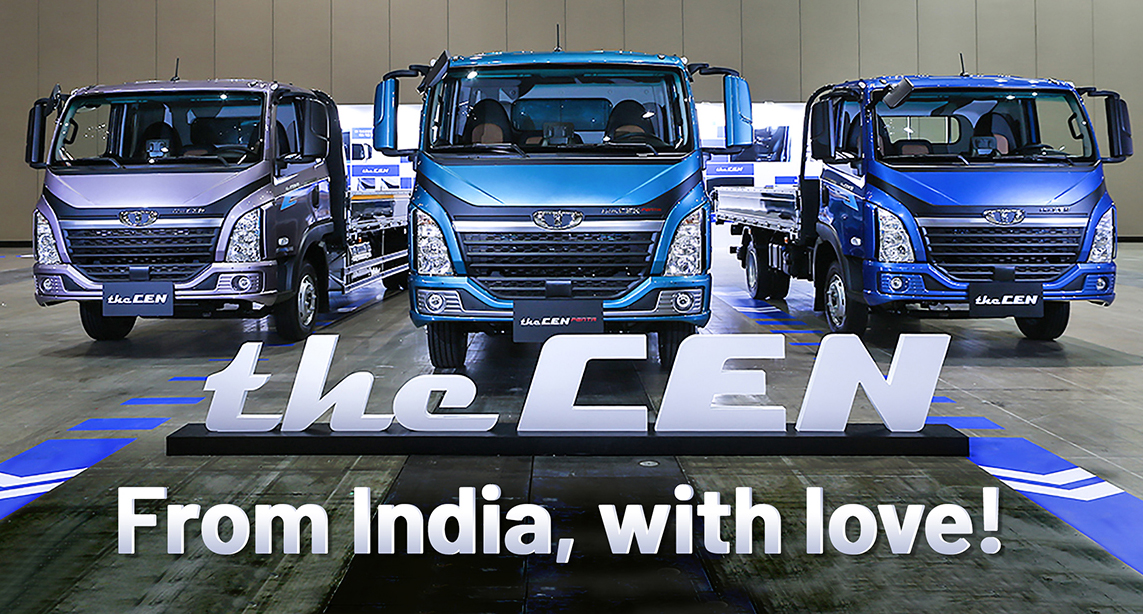
‘Teamwork is dream work’, it is often said. It won’t be more apt in a case where engineers and designers sitting in offices separated by 5,500 km of land between them would be working together to redefine cargo transportation needs to one of the fastest growing nation in the world. It’s a project known as ‘theCen’. But what is it actually about? Well, before we tell you more, you need to know more about a truck platform that has been selling in huge numbers in India. Tata Motor’s ‘Ultra’ platform is the latest, most modern piece of engineering from the largest truck manufacturer of the country. It is contemporary in its styling, comfortable with its cabin and highly modular in its applications.
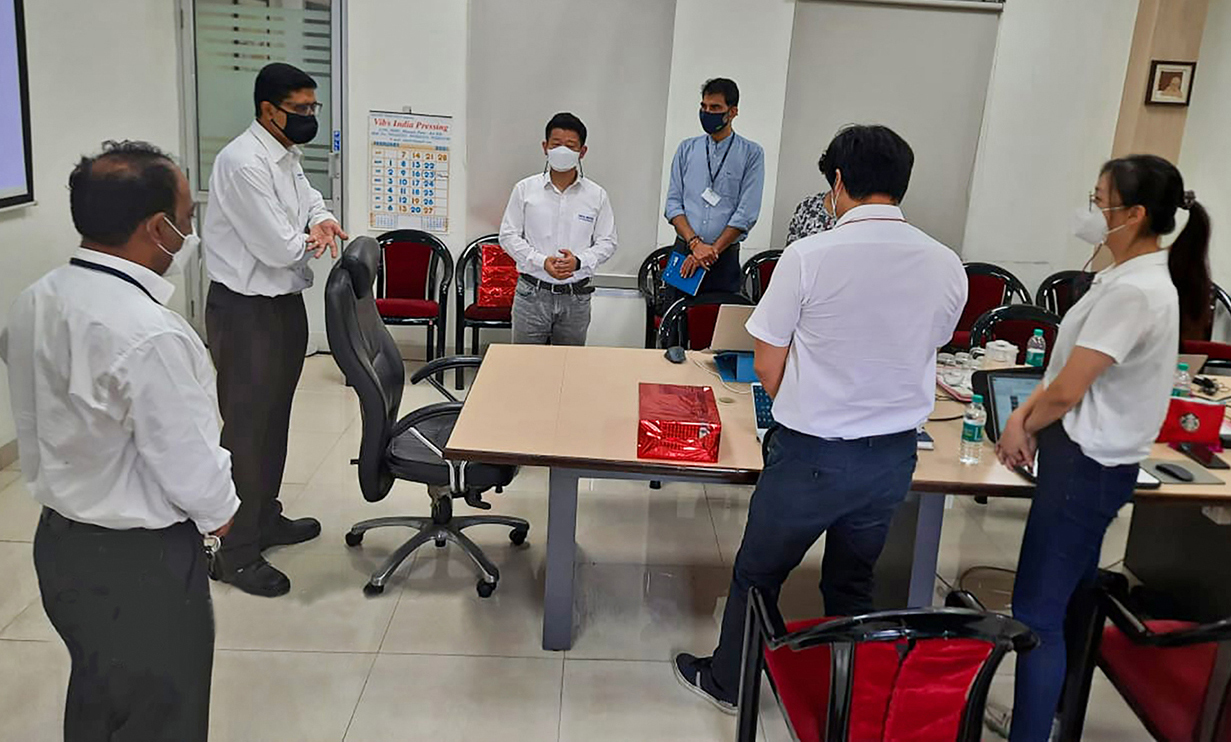
In this scenario, theCen is a world-class truck platform designed specifically keeping the local requirements and government norms of South Korea in mind. The underpinnings of the truck remain similar to that of the Tata Ultra, but there is a truckload of work that has been invested in it to make theCen from its Indian cousin. Excellence in teamwork between Tata Daewoo Commercial Vehicle (TDCV) and Tata Motors Limited (TML) helped TDCV to enter the Korean LCV market for the first time. From product planning, development, research and development, proto test, homologation, production and from marketing to the actual launch, nothing was easy.
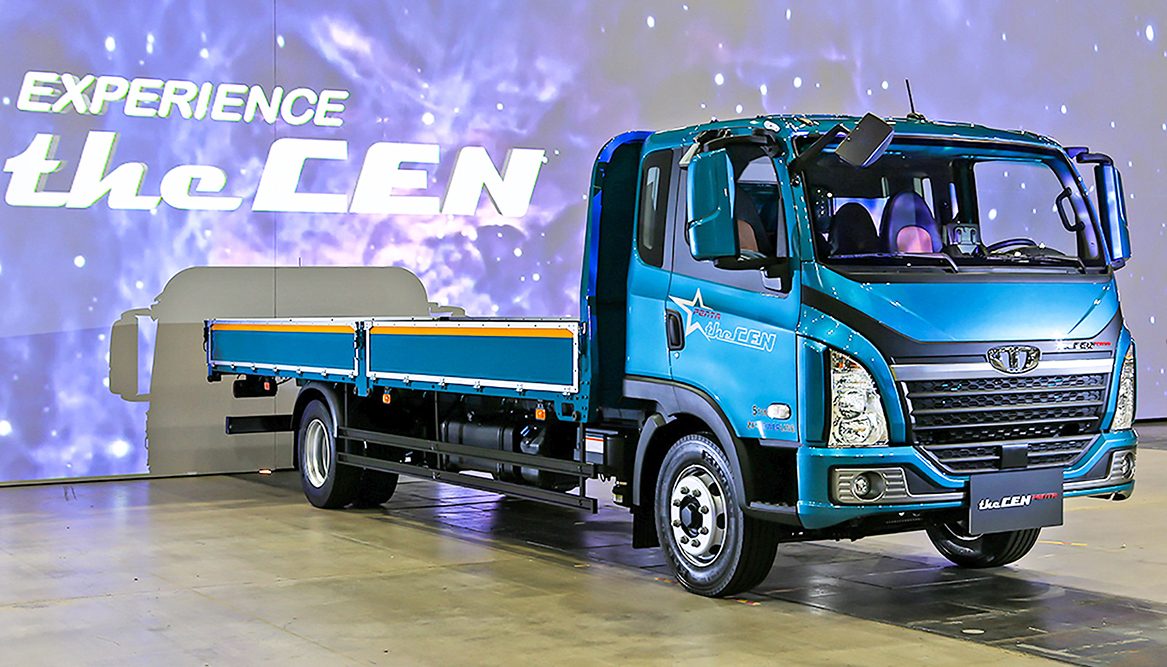
The project started in 2017, but both internal and external situations surrounding TDCV were unfavourable and the project was suspended. Come 2019, theCen project was shown the green flag and work began in full swing – in Tata Motors’ Pune plant as well as in the land known to the world for its electronics, cosmetics and of course the ‘Gangam’ style pop songs. The task was tall and herculean – to make a truck that would look straight in the eyes of the manufacturer that has ruled the Korean roads for 35 long years, Hyundai. The war began and at the helm of things were TDCV’s CEO Kim Bang Shin and Vice President Anil Sinha.
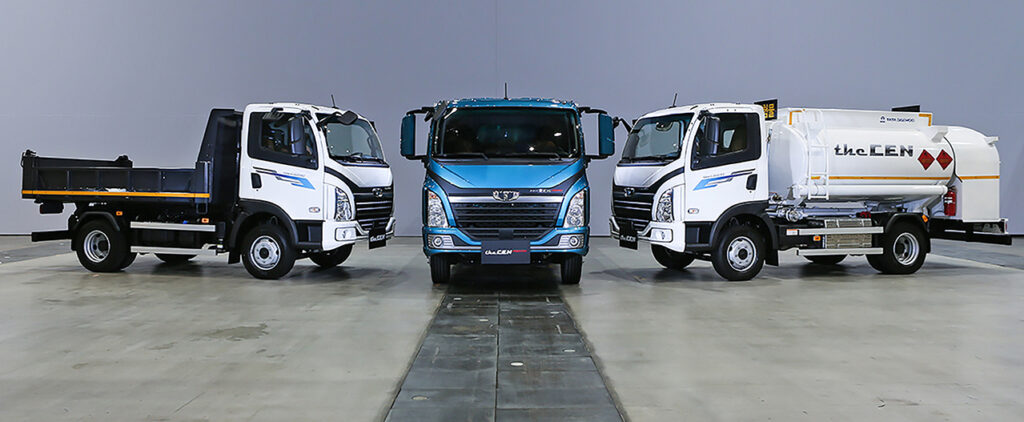
Putting Minds and Technology Together
Teams on the project would work like cogs in a fine Swiss watch, ensuring errors were at the least and efficiency was at the maximum, ensuring tight deadlines would be adhered to – all this with a three and a half hour time difference between the two countries. To the world outside it may sound like a weekend job to adapt a successful truck platform slightly to match the needs to another Asian market. How hard could this be, right? Wrong! The styling had to be redone to appeal to the taste of the people of South Korea. The day cab had to have larger proportions to keep the Korean driver comfortable and the drivetrain had to be rethought to match up the higher output requirements of the nation.
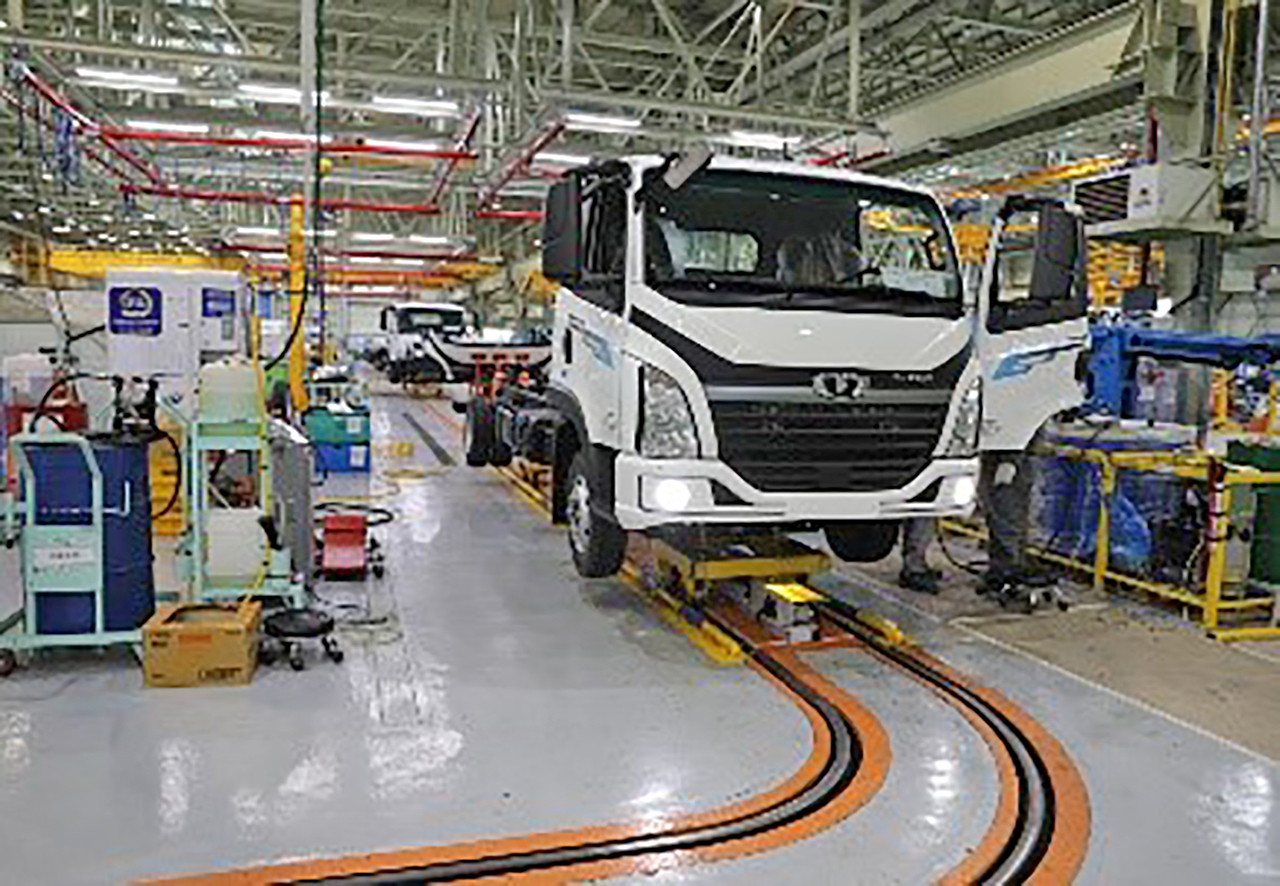
It required calibrating a completely new engine brought in from Europe, mating it with a ZF-sourced 8AP transmission and redoing the other bits like a different setup for brakes and seats, amongst other things. TDCV had to play the price card, something that its parent company has been known to do effectively for many decades in India. theCen had to offer something that its rivals from Hyundai would not – value engineering. It had to take the fight to the king, through the treasurer. Commenting on the project, Kim Bang Shin says, “At the start, the task seemed impossible. The jigsaw puzzle just wouldn’t fall in place. We had to break it down to smaller pieces, address every little bit with much caution. We couldn’t afford any errors. We had to get it right the very first time. And we did!”
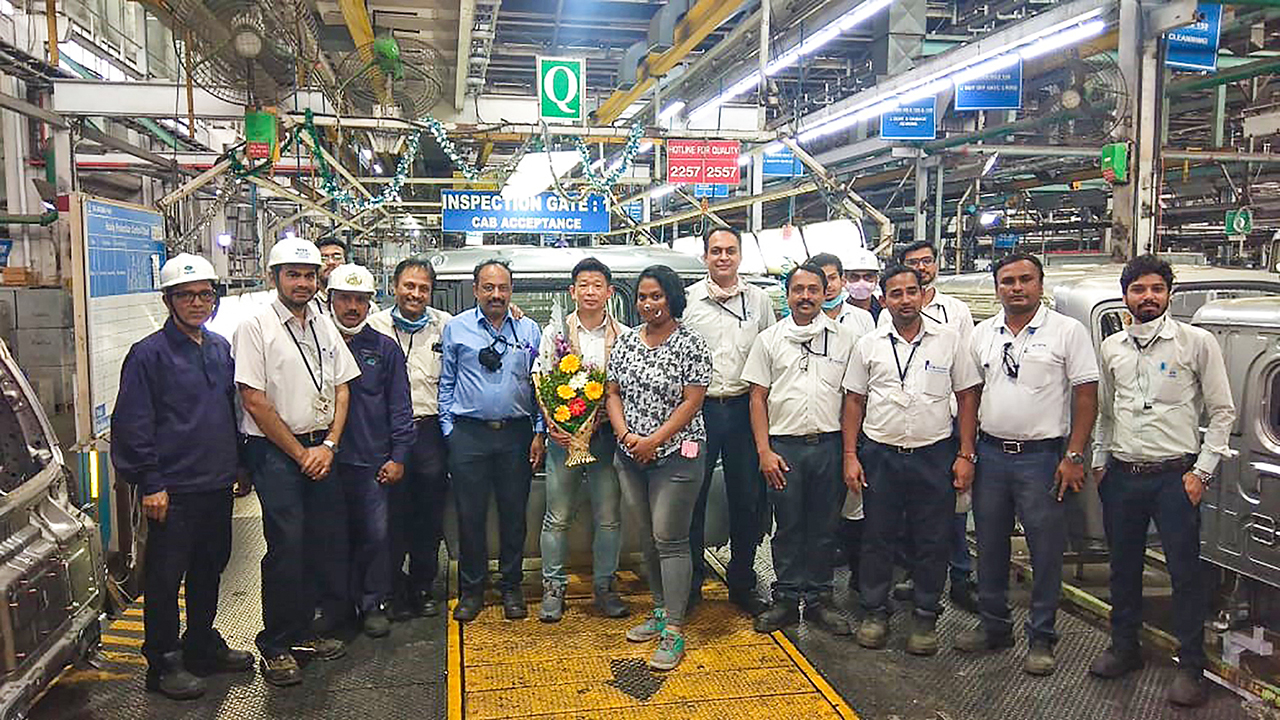
Anil Sinha adds, “This novel innovation took us way beyond our comfort zones. We were in uncharted territory. It was only the confidence we had in our team members in both Pune and Gunsan that kept us going. We were committed create an icon that Korea had not witnessed till date. theCen had to rewrite rules. And it did!” V Seethapathi, Vice President (Product Line – Intermediate and Light Commercial Vehicles), Tata Motors, who has been spearheading the project from India says, “The work that we carried out was path-breaking, and I doubt any other truck maker has attempted a project of this magnitude in such a timeframe.”
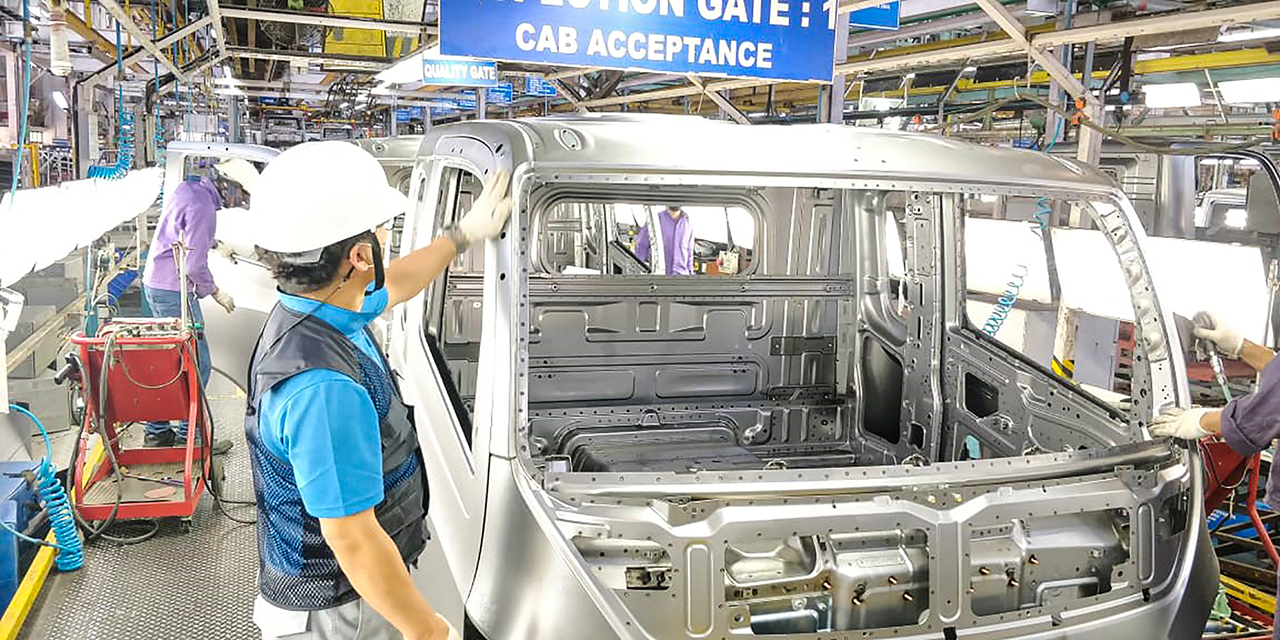
“Most of the work was carried out while the dreaded virus had disrupted the regular workings and we had to find innovative ways of working, remotely, and yet maintain the quality standards that the market demands,” he adds. There, theCen was born – a body inspired by an Indian but a heart that beats for Korea. The world, by the time theCen was ready to be showcased to Korea, had changed in more than one ways. Calling in dealers, press, transporters to a fancy five-star hotel, unveiling the new kid on the block with much drama, perhaps even with shots of confetti going out dazzling the audience, was a thing of the past. It was the pandemic era – the launch was planned and executed with the audience being in front of the screens, cocooned from the dreaded virus. But then, that is a task by itself to keep the audience entertained and glued in. The powers of communication and synchronisation were put to test and the audience appreciated a fresh, new perspective to Korean LCVs. Meticulous planning, sleepless nights and hours of work on the shop floor from design and development, to sourcing of parts from suppliers to manufacturing to logistics was carried out – keeping in mind the high quality standards that Koreans have been used to, at a cost significantly lesser than what they have been paying.